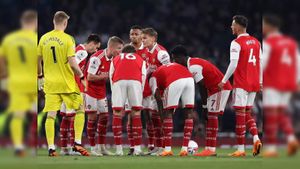Germany stands on the brink of significant political change as the nation prepares for its federal election on February 23, 2025. The upcoming vote has become particularly urgent following the collapse of Chancellor Olaf Scholz's coalition government, leading to what many analysts describe as one of the most pivotal elections of modern times.
Scholz's government, often called the "traffic light coalition" due to its colors associated with the participating parties—SPD (red), Greens (green), and FDP (yellow)—was effectively dissolved when Scholz dismissed Finance Minister Christian Lindner of the FDP on November 6, 2023. This unprecedented move, followed by the parliamentary vote of no confidence, has resulted in the call for early elections, intensifying the competition among both established and rising political movements.
Public sentiment heading to the polls reveals deep frustrations, particularly about issues of migration, economic instability, and the rise of far-right sentiments. A recent report illustrated how heavily impacted cities like Magdeburg are experiencing increased social tensions. "The atmosphere in Magdeburg has changed. It is filled with hate," expressed one young voter, reflecting on the community's anxieties following recent violent incidents.
Recent polls forecast dramatic shifts within the Bundestag, with the CDU/CSU, led by Friedrich Merz, potentially becoming the largest party, garnering nearly 30% of the votes. Support for the far-right AfD is also surging, with projections indicating they may receive upwards of 21%. Meanwhile, the incumbent SPD, traditionally one of Germany's strongest parties, expects to fall to around 15%, marking a significant decline from their previous performance.
The Greens, under the leadership of Robert Habeck, are forecasted to secure about 12.5% of the vote, and the Left party, alongside Sahra Wagenknecht's BSW, appears likely to enter the Bundestag as well. Notably, the liberal FDP is on shaky ground, with projections showing it may fail to surpass the required 5% threshold for representation—a stark indicator of the shifting political tides as voters reassess their party loyalties.
Election experts and political commentators have voiced their opinions on the election's outcome and ramifications. Many are apprehensive about the potential for extreme-right coalitions, which Merz has publicly ruled out. "It is too early to talk about such security guarantees for Ukraine, but we need to focus on defending Europe ourselves," he stated, highlighting the urgency for European self-defense amid growing geopolitical tensions.
Voter indecision also plays a significant role this election; according to the latest polling data, nearly 28% of eligible voters remain undecided. This factor presents both opportunities and challenges for party candidates as last-minute campaigning intensifies. Scholz expressed his belief, stating, "I am convinced many people on Sunday... will choose SPD." Yet, the opposition has seized upon the government's waning popularity, with Merz cautioning about the necessity for the CDU/CSU to confirm their strength moving forward to avoid relying on inadequate alliances.
The significance of youth and diverse voters is becoming increasingly pivotal, as voices from various communities are calling for representation and change. Amidst the swirling narratives of fear surrounding the refugee crisis, many political advocates, like Amidou Traore from the SPD, urge policymakers to prioritize unity over division. "People look for someone to blame when times are tough, but this new government must represent all voices," he stressed.
Concerns about electoral integrity and software security have also taken center stage with critiques of the election processes, emphasizing the need for transparency, especially as recent incidents raised alarms about the counts and results’ accuracy. Experts suggest adopting open-source solutions for election infrastructure to bolster public trust.
The final days leading to the election are ripe with anticipation, as citizens prepare to cast their votes, heavily influenced by online and offline campaigning, reflecting diverse perspectives across the spectrum. Testing the waters with social media outreach and public demonstrations, both major parties are working hard to connect with younger voters wary of traditional party lines.
Bundestagswahl 2025 is not just another election; it is seen as reflecting the national mood and grappling with sharp challenges, especially concerning future governance and social cohesion. The discussions and debates leading up to the big day could redefine the contours of German politics for years to come.
History might judge the election as a turning point—a time when the voices of the populace truly steered their country’s agenda toward inclusivity and security. All eyes will be on Germany as voters make their choices amid this tide of change.



